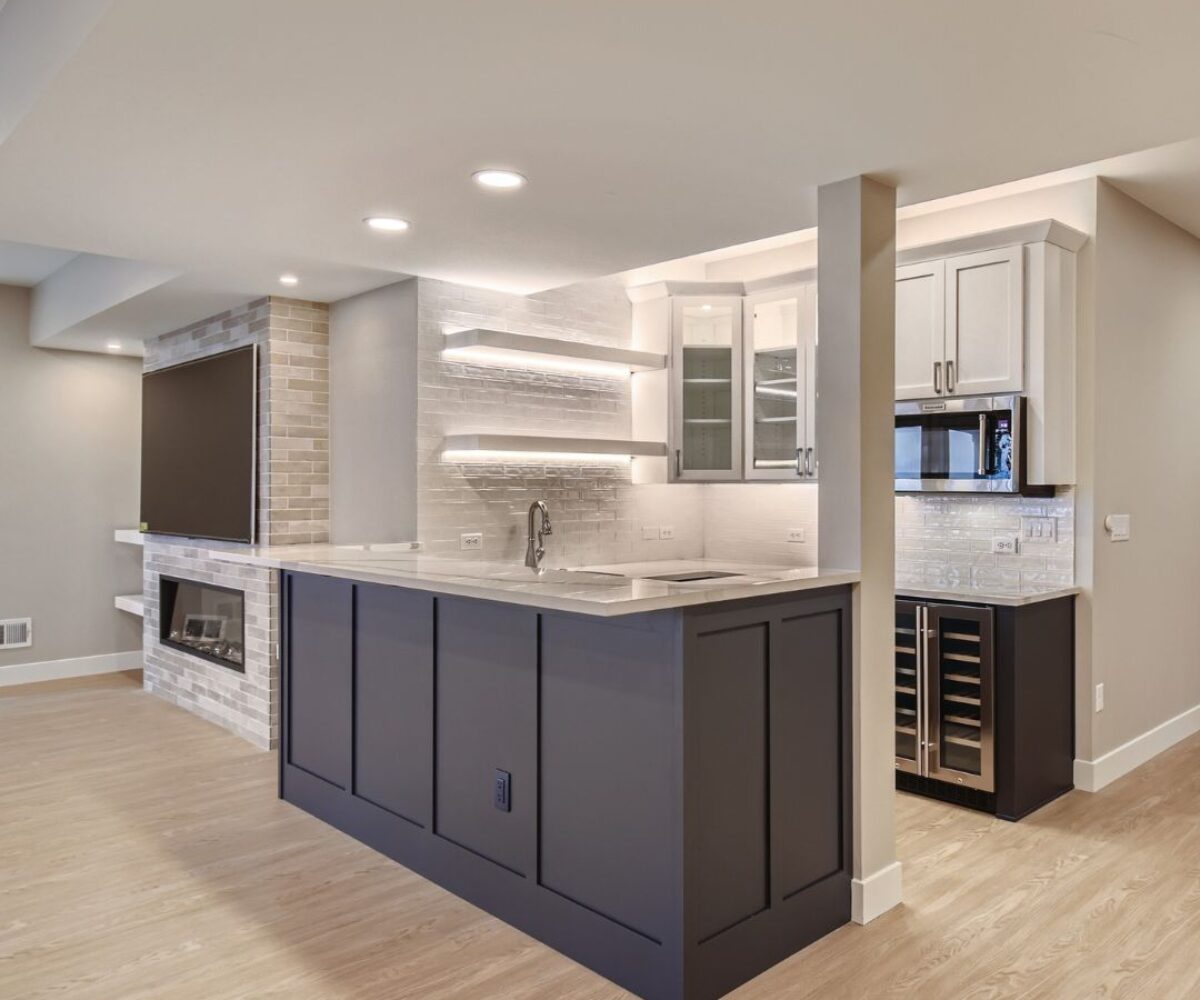What is the Most Expensive Part of Finishing a Basement?
Finishing a basement can transform a dark, uninviting space into a warm and welcoming part of your home. It can provide that extra bedroom, a home office, or the perfect spot for a home theater. But when you start planning to finish your basement, a critical question comes to mind: how much will it cost? Even more specifically, what part of this renovation will be the most expensive?
Understanding where your money goes can help in planning an accurate budget, and in making cost-effective choices.
1. Foundation and Waterproofing
Before you begin to dream about paint colors or carpet textures, you need to ensure your basement is dry. Foundation repairs and waterproofing can be quite substantial budget items. If cracks or leaks are present, addressing these issues is essential to prevent future water damage and/or mold growth. Depending on the severity, foundation repairs can range from simple fixes to comprehensive waterproofing systems, which can quickly become the most costly aspect of the project. If, however, your basement is free of cracks, mold, or other signs of water intrusion, you may be able to delete this costly line item from your budget.
2. Framing and Insulation
Establishing the bones of your new space includes framing out rooms and installing insulation. These items will be a significant part of your budget. The materials themselves, especially with recent increases in lumber costs, can be pricey. Moreover, properly insulating your basement is crucial for energy efficiency and moisture control. High-quality insulation material and proper installation can increase costs but will save money in the long run on heating and cooling.
3. Electrical Work
Bringing power to your new living space is not optional. Depending on how extensive your plans are, electrical work can add a hefty sum to your project. This includes not only light fixtures and outlets but also potentially the cost of upgrading your home’s electrical panel to handle the increased load. Safety codes must be met, and most often this means hiring a licensed electrician, which is a wise but sometimes expensive choice.
4. Plumbing
If your basement renovation includes a bathroom, kitchenette, or wet bar, plumbing is another significant cost factor. Installing pipes, fixtures, and possibly a sump pump or up-flushing system requires a professional plumber, and it’s not something you want to skimp on. High-quality work will prevent leaks and other issues that could devastate your newly finished basement.
5. HVAC
A comfortable temperature is essential for a livable basement. Extending your home’s heating, ventilation, and air conditioning (HVAC) system into the basement can be costly. It often involves installing additional ductwork, vents, and sometimes even a separate HVAC unit—a major cost when finishing a basement. A professional HVAC company will know how to best work the trunk lines into your basement design.
6. Drywall and Paint
While not the most expensive on a per-item basis, drywall installation and painting can add up, simply due to the sheer volume of material and labor required. Doing the job right—with seamless walls and a professional paint job—can really make your basement feel like an integral part of your home.
7. Flooring
Flooring options can vary widely in cost depending on what you choose. A basic carpet might be your most cost-effective option, but if you want something like heated floors, high-end tile, or EVP flooring, be prepared for the price tag to increase significantly. This is one area in which you have some control over costs.
8. Egress
Building codes often require an egress window for basements to be considered a livable space. Installing an egress window can involve significant excavation and structural reinforcement. It’s a crucial feature for safety, but it comes with a considerable cost.
Understanding which parts require the most investment allows you to make informed decisions and prioritize your spending. It’s always recommended to have a contingency budget for unexpected expenses to ensure your project runs smoothly. With the right approach, your basement transformation can be a rewarding venture that enhances your home for years to come.
Contact us today to schedule a no-obligation estimate, and let’s start designing your dream space in your Denver Metro Area home.

